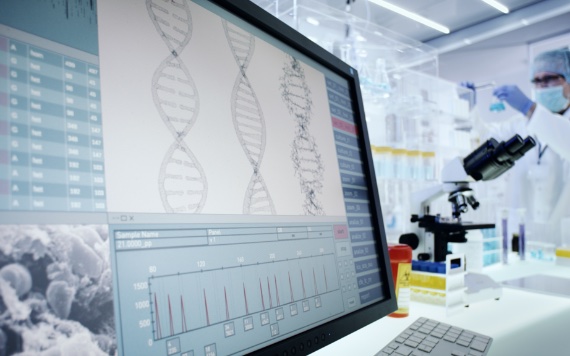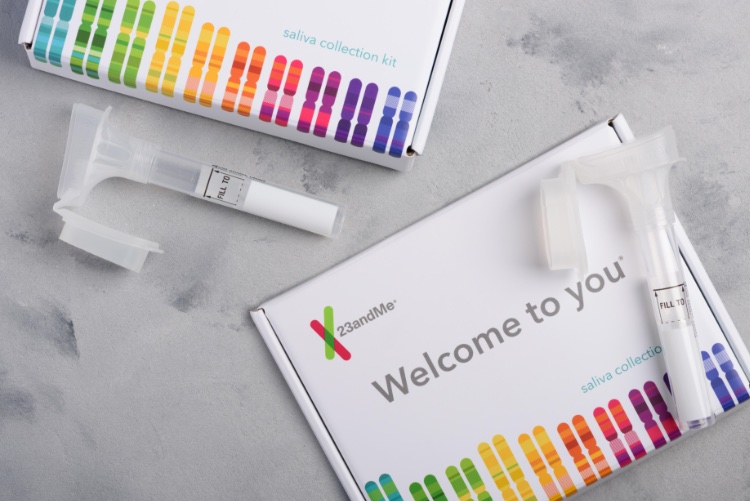When Phil Rogers received his genetic test report, he read that it showed he had an exceptional talent for athletics, cycling, boxing and basketball. But it overlooked one small detail: the individual who was so gifted at sports was not actually human. Rogers had sent a saliva sample from his dog, Bailey. He didn’t do it out of malice: as an NBC journalist, he wanted to test the reliability of direct-to-consumer (DTC) DNA testing kits that can be purchased online. Of the various tests he chose, almost all reported that the dog sample was unreadable, but one gave him that strange result. DTC genetic tests of all kinds have proliferated in recent years, but are they scientifically reliable? And to what extent is our destiny written in our genes?
The first genetic tests came onto the market at the beginning of this century, in the wake of the Human Genome Project. However, the vast majority of DTCs don’t sequence the genome, but simply identify certain gene variants—single nucleotide polymorphisms or SNPs, pronounced “snips”—that research has linked to certain traits, diseases, proclivities or populations. For example, various DTC analyses provide results on inherited pathologies, genetic predisposition to disease, drug response, geographic and ethnic ancestry, personality traits, talents and wellness. These tests should not be confused with DNA fingerprinting, which analyses small variable regions of the genome and is used in criminalistics and for paternity or kinship testing.

In recent years, both supply and demand have grown exponentially, particularly since 2017. In that year, one of these tests was Amazon’s fifth best-selling item in the US on Black Friday, and since then DTC tests have established themselves as a very popular gift. Consulting firm Global Market Insights estimates that in 2022 the market size surpassed $3 billion, and will reach $10.5 billion within a decade.
The real impact of genomic sequencing
Experts view this trend with caution and some misgivings. There is no questioning the great value of clinical genetic testing under medical prescription and with genetic counselling when there is a recognised familial risk of a hereditary condition, or as an aid to the prevention of diseases such as cancers associated with certain variants. This is the spirit of personalised medicine and is, for example, the approach of the US Centre for Disease Control (CDC). But with respect to DTCs, the agency notes that they “cannot definitely determine whether or not you will get a disease and should not be used alone for decisions about your treatment or medical care.”
In fact, serious doubts about DTC health tests led the US Food and Drug Administration (FDA) in 2013 to order the company 23andMe, one of the market leaders, to withdraw its health-related genetic tests pending new regulation, which began to be introduced two years later. Currently, the only DTC genetic health tests authorised by the FDA are all from 23andMe and include the detection of genes for certain hereditary diseases and risk variants for developing others, such as Alzheimer’s or Parkinson’s, and certain cancers, such as breast, ovarian or prostate. However, with regard to the latter, the FDA makes it clear that the presence of one of these variants does not condemn a person to developing the disease, nor does the absence of the variant remove the risk of suffering from it.

The situation is very different for other types of DTC tests. Ancestry, personality, talent, wellness and other tests are exempt from regulation by authorities such as the FDA, so they proliferate unchecked. The case of journalist Phil Rogers is an extreme example of low reliability. The International Society of Genetic Genealogy maintains a list of DTC ancestry testing services, and the UK website DNA Testing Choice covers all the types of tests available, along with their ratings.
For experts, these tests have very little scientific validity. “I do not really recommend purchasing tests at this time given the lack of regulation of the market and unreliability of most tests,” Andelka M. Phillips, a law, science and technology expert at the University of Queensland, Australia, who specialises in the regulation of the personal genomics industry, tells OpenMind. “Most tests are not standardised and as most tests do not involve whole genome sequencing their usefulness to individuals is inherently limited.”
The risks of non-regulation
Phillips recommends consulting a medical professional about the health risks, and reminds us that the results of any test affect not only the individual, but potentially their family members as well. As for ancestry tests, “it’s important to understand that they are not standardised and so you may obtain different results from different companies, so it’s not really something you can rely on.” The same goes for genetic tests for talent, wellness and other purposes.

But Phillips also stresses that the lack of regulation poses a privacy risk: “Given the nature of genetic information, it can be used of a wide variety of secondary purposes, so I recommend that people think carefully about it before having a test.” The problem, as she discusses in her book Buying your Self on the Internet: Wrap Contracts and Personal Genomics (Edinburgh University Press, 2019), is that the terms and conditions users agree to may include the transfer of their data to third parties. “Your genetic data could be used for medical research and shared with other entities such as law enforcement,” she warns. As an example, she notes that 23andMe has at least 14 agreements with pharmaceutical companies. Sharing an individual’s data with health insurance companies could negatively affect the underwriting of an insurance policy.
“I think we need more regulation of this industry and that requires international collaboration given that the industry operates internationally,” concludes Phillips. This is all the more urgent as the outlook for these analyses in the near future suggests new applications, such as predicting physical appearance from genes, with possible legal implications. Another new risk has recently been raised: genetic paparazzi. Today, a photographer may take compromising pictures of a celebrity; tomorrow, someone may surreptitiously pick up a glass or napkin that the celebrity has touched to reveal their genetic profile in a tabloid or on a TV show.
Comments on this publication